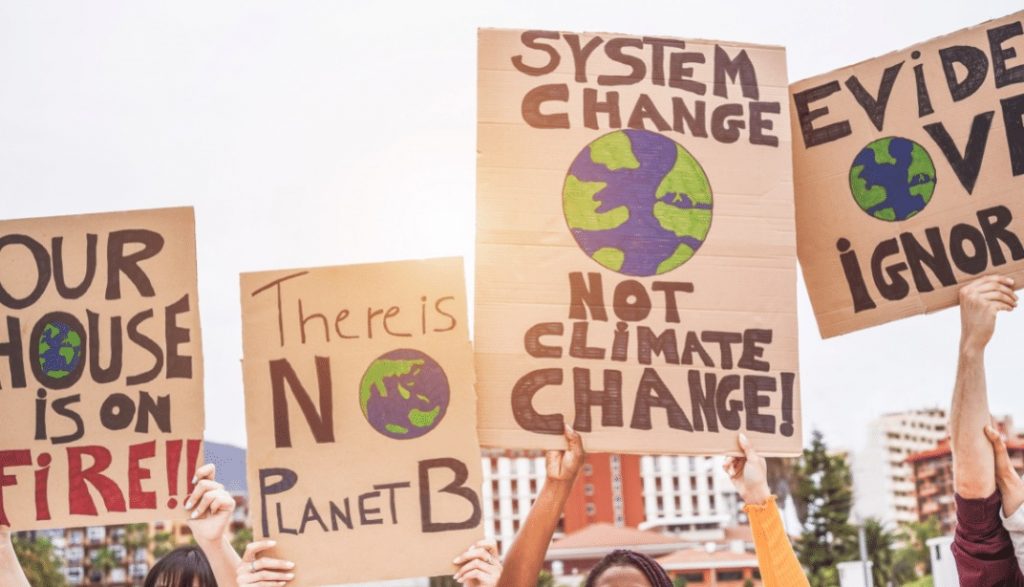Edition: March 25, 2022
Curated by the Knowledge Team of ICS Career GPS

- Excerpts from article by Christine Ro, published on bbc.com
Younger workers have higher eco-anxiety than those who have come before them. It’s affecting where they can – and will – work. For one such young worker, 26-year-old Lillian Zhou, the issue of climate change is a subject of existential anxiety. Like her, many young people are worried about the climate – and have the desire to work for a company that’s doing something about it.
Zhou grew up in the US state of Michigan, which has been experiencing milder winters coupled with fiercer storms.
“These storms have led to flooding that endangers lives and destroys property as well as causes more run-off into our state’s many lakes,” says Zhou.
She has turned to work as a way to channel her eco-anxiety in a positive direction. Since graduating from university in 2017, she has worked in both the private and public sectors and is currently in a year-long communications role with the solar energy non-profit GRID Alternatives.
Many young workers like Zhou are searching out professional paths that combine flexibility and a deep sense of purpose.
Demand is surging for these kinds of climate-related jobs – making it crucial for employers, careers advisors and educational institutions to revamp their programming to be as climate-relevant as possible.
Gen Z Concerned About Climate Change
In a 2018 survey from global consulting firm Deloitte, 77% of Gen Z respondents said it was important to work at organisations whose values aligned with theirs.
- Gen Z (people in their teens to mid-20s) are much more concerned about climate change than older generations.
- Social values matter deeply to this population, and the issue of climate change particularly.
- This explosion of interest in values-related work is also reshaping the educational landscape.
- Increasing numbers of university students are seeking out environment-related careers.
Yet while young people may be generally interested in a climate-related career, they might not be aware of the specific career pathways – especially if the careers guidance in secondary schools and elsewhere is dated and not very climate-relevant.
Driven By Values, Not Pay
Clearly, there’s an enormous need for more climate action as well as an abundance of eager young people who want jobs in this space – yet workers aren’t being optimally matched to the jobs available.
- LinkedIn’s first-ever Global Green Skills Report, released in February, shows job posts requiring green skills have been growing at 8% annually over the past five years, outpacing the 6% growth in green talent.
- Still, there are not enough high-paying stable jobs for the demand.
- Many avenues into the ‘green’ jobs that do exist require volunteering and networking, which isn’t viable for all.
- One of the drawbacks to these types of jobs, considered “passion work”, is that they may come with low pay, leading to high burnout rates.
- There are also some imbalances in gender and racial representation.
- Overall, however, pay is less important to Gen Z.
- A recent survey of US business students found that 51% would take a lower salary if the company was environmentally responsible.
- However, not all environment-focused jobs require financial sacrifices. Environmental scientists, will see a high rate of job growth in the next 10 years.
- There’s also a pressing need for more hands-on, vocational training.
Many Gen Z-ers are also interested in working in sustainability-adjacent positions, even if they are in industries that aren’t overtly environment-related.
Making Every Role A Sustainability Job
- Costley-White’s classmate Anna Marshall, who just turned 23, believes climate change could also impact job security.
- Climate change will drastically impact the global economy over the next 20 years which makes career decisions difficult to predict.
- The idea of a long, single career path which would see you through to retirement is now outdated.
- There’s a paradigm shift in realising that every job needs to be a sustainability job at some level.
- Currently there is a major need for people with the skills to respond to new environmental regulations. This need is likely to grow in complexity and nuance.
- Also a major room for expansion in the areas of supply chain sourcing, big data, AI and blockchain, as they relate to sustainability.
Lillian Zhou explains, “I’m interested in renewable energy because frankly, I don’t think that my generation can afford not to be. It’s just not something you can ignore. I cannot imagine a more important industry to be a part of.”
…
Have you checked out yesterday’s blog yet?
Understanding the UGC Guidelines for Multidisciplinary Higher Education
(Disclaimer: The opinions expressed in the article mentioned above are those of the author(s). They do not purport to reflect the opinions or views of ICS Career GPS or its staff.)
Like this post? For more such helpful articles, click on the button below and subscribe FREE to our blog.





2 Replies to “Career Trends: How Climate Change is Re-shaping the Way Gen Z Works”